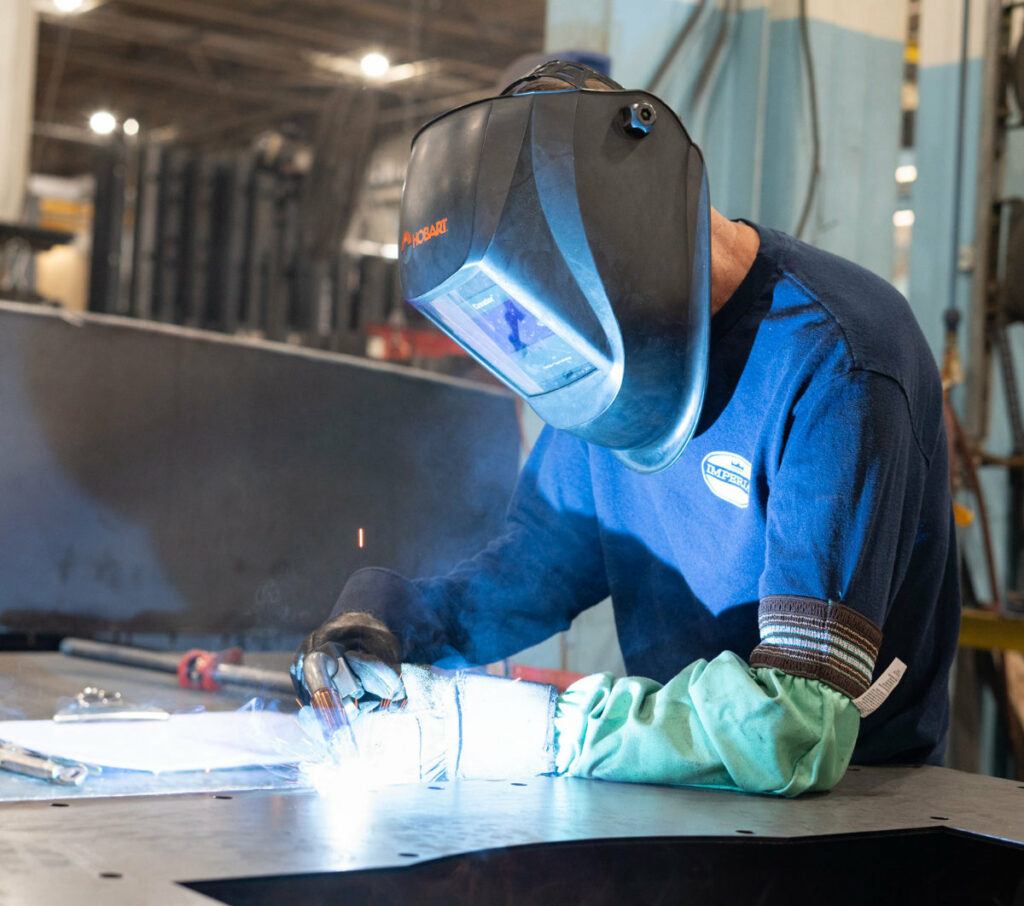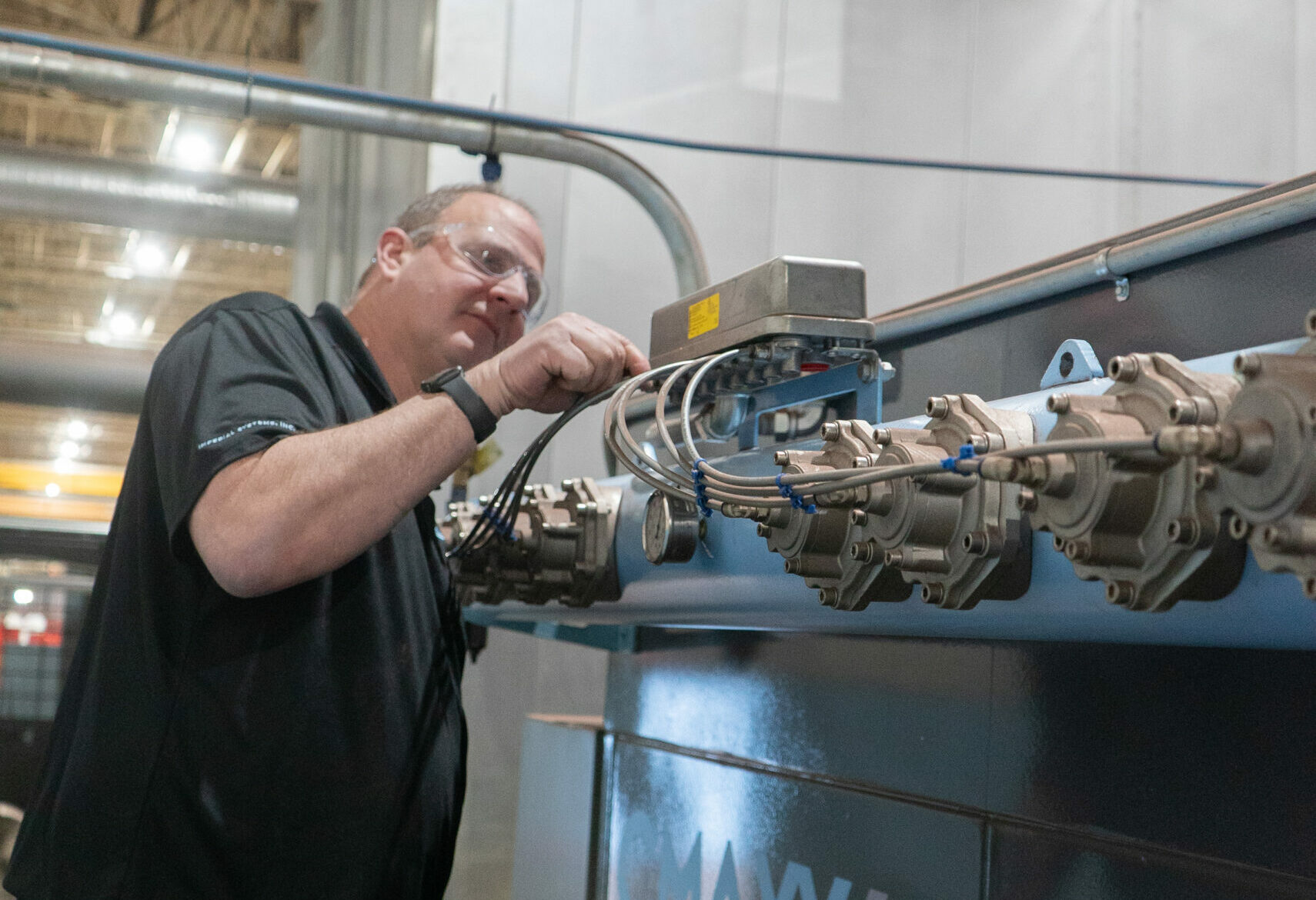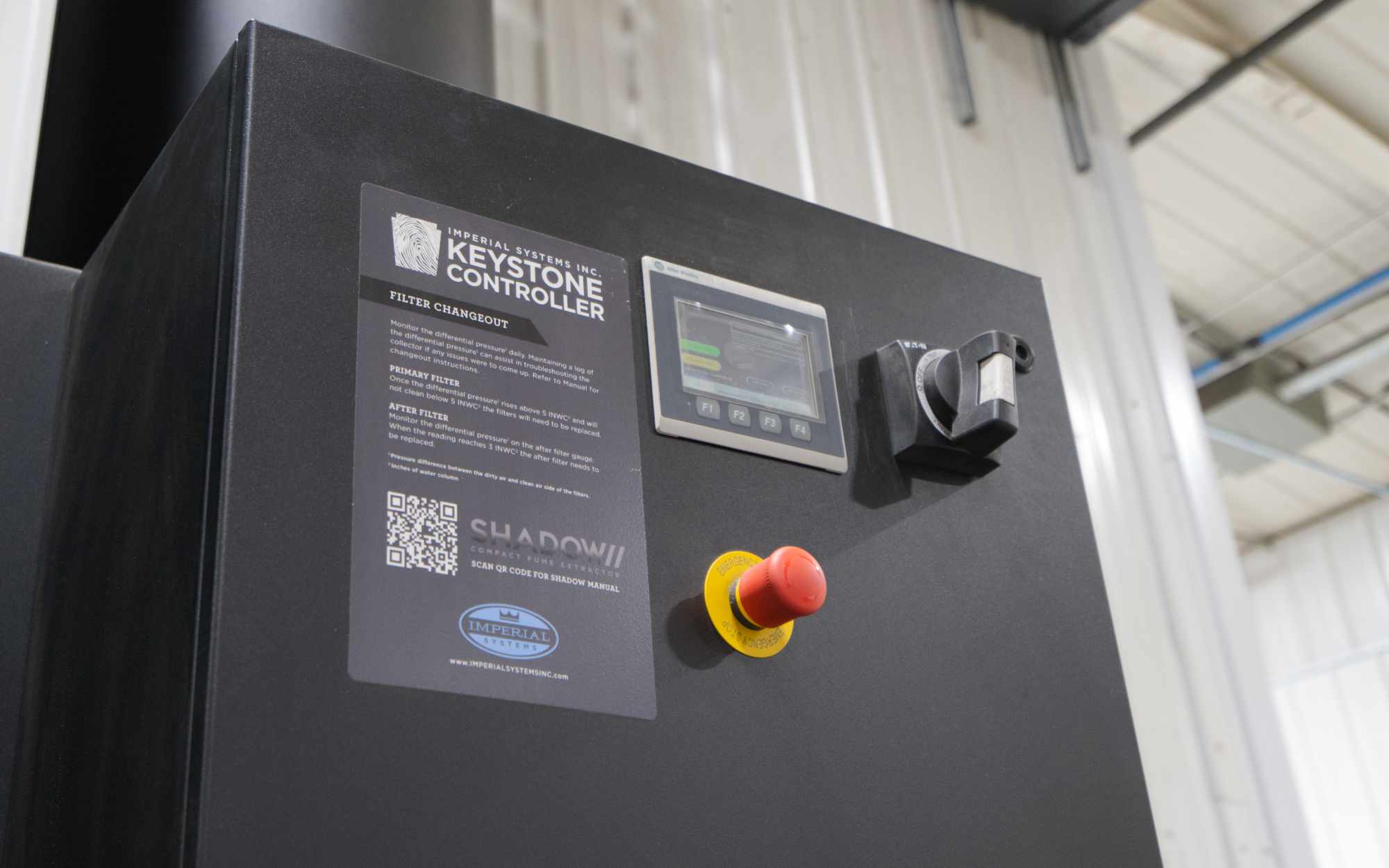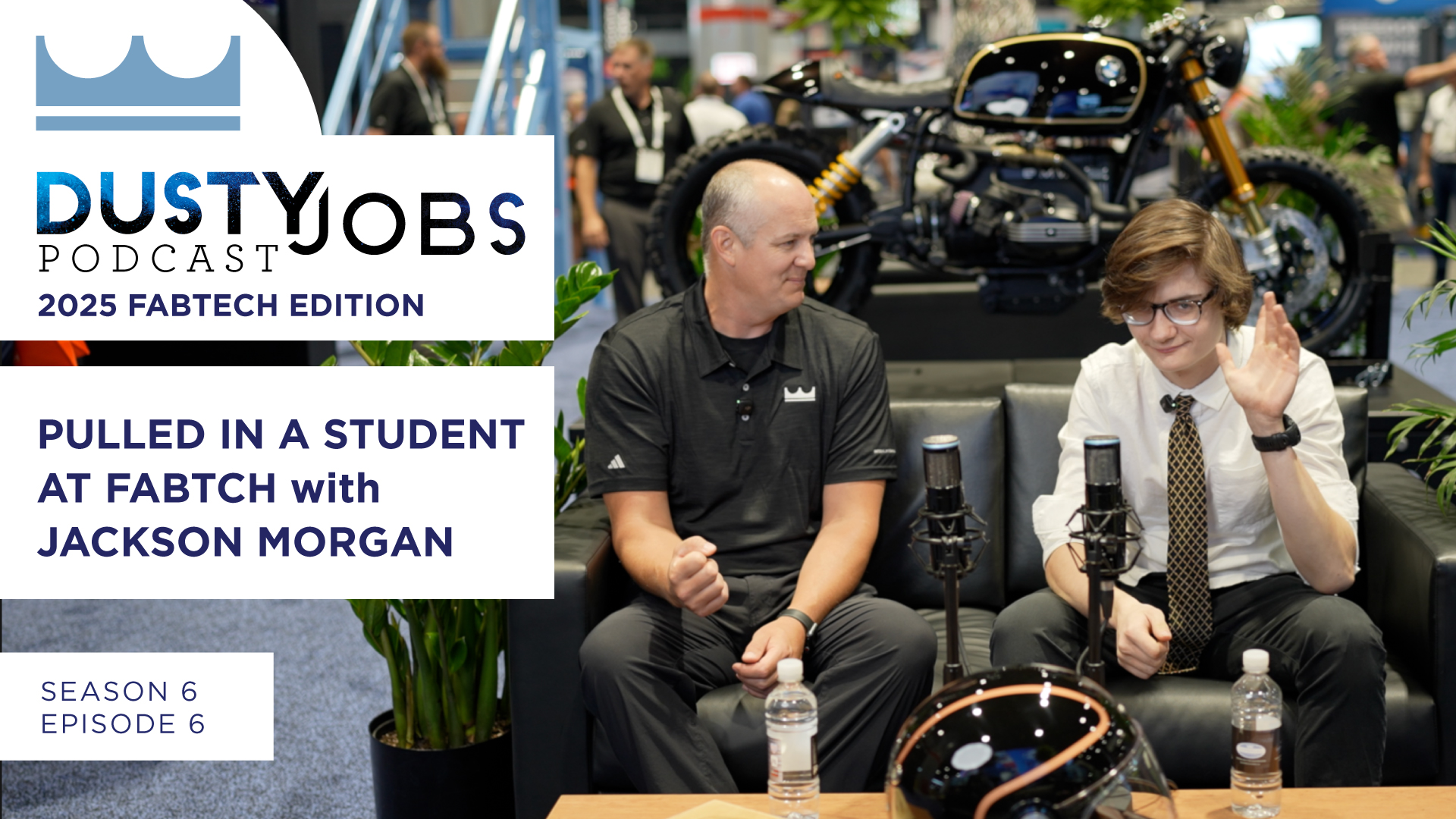In a welding shop, maintaining a safe and healthy work environment is a top priority. Welding generates harmful fumes and particulates, which can pose significant health risks to employees if not properly controlled. To mitigate these risks, some shops rely on respirators. These respirators may be a part of the welding helmet. They may also be a separate PPE device to wear under the helmet. Other companies may invest in comprehensive dust collection systems. While both options offer protection, a dust collection system is the superior choice for several key reasons.
Comprehensive Air Quality Control, Unlike Welding Respirators
Welding respirators provide individual protection by filtering harmful fumes and particulates directly at the source. However, they limit coverage to the welder wearing the device, exposing others in the shop. This is similar to fume arms which capture fumes at the source but are often cumbersome to move and only protect the person working directly beneath them.
A dust collection system means that even employees who aren’t wearing respirators, such as those performing other tasks nearby, are protected from exposure to hazardous air contaminants. The overall air quality in the shop improves, leading to a safer work environment for everyone.
 Consistent Protection Across the Workspace
Consistent Protection Across the Workspace
Welding respirators are designed to protect the wearer by filtering the air they breathe. However, the effectiveness of these devices can vary depending on how well they fit, filter change frequency, and whether the wearer is using a mask consistently.
However, a dust collection system operates continuously, ensuring consistent protection across the workspace. It doesn’t rely on individual usage habits or require regular maintenance from each employee. Properly maintaining the system provides reliable, ongoing protection against airborne contaminants. This reduces the likelihood of employee exposure and potential health issues.
Enhanced Productivity and Comfort
Wearing a welding respirator can be cumbersome and uncomfortable, particularly during long work shifts. The added weight and bulk of the filtration unit can cause fatigue, reducing productivity and increasing the likelihood of mistakes. Employees may also be tempted to remove their masks for brief periods, exposing themselves to harmful fumes.
In contrast, a dust collection system improves comfort and productivity by keeping the air clean without requiring any additional gear. Employees can work more comfortably and efficiently, knowing that the air they breathe is safe, without the need for heavy, restrictive equipment. This leads to fewer interruptions, higher productivity, and a more pleasant work environment overall.
Long-Term Cost Savings Over Welding Respirators
While respirators may seem like a cost-effective solution in the short term, they can become expensive over time. Filters need to be replaced regularly, and the devices themselves may need frequent maintenance or replacement. Additionally, the potential costs associated with employee health issues due to inadequate air quality control can be significant.
A dust collection system, although it requires a larger initial investment, offers long-term cost savings. It reduces the need for individual protective equipment, lowers the risk of health-related expenses, and extends the lifespan of tools and equipment by minimizing exposure to corrosive fumes and dust. Over time, the system pays for itself through improved efficiency, reduced maintenance costs, and a healthier workforce.
While welding respirators provide a level of individual protection, they fall short when compared to the comprehensive benefits of a dust collection system. A dust collector not only improves air quality for the entire shop but also enhances productivity, comfort, and long-term cost savings. For any welding shop serious about safety and efficiency, investing in a dust collection system is the clear and superior choice. Reach out to an Imperial Systems representative to discuss the best welding filtration solution for your facility.


